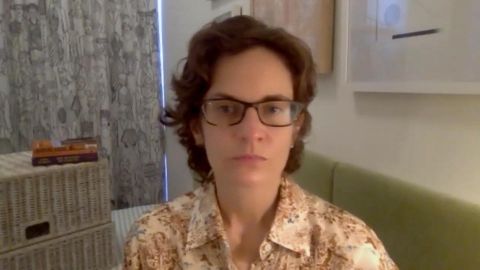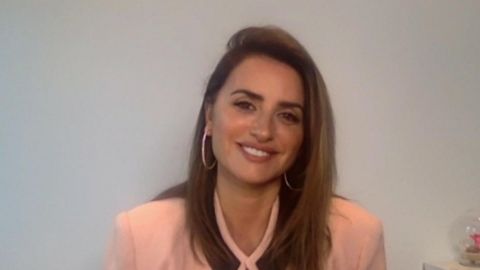Read Transcript EXPAND
CHRISTIANE AMANPOUR: I think your director, Pedro Almodovar, said that it was one of the most difficult roles that you have ever played, either with him or with anybody else. Would you say that?
PENELOPE CRUZ, ACTRESS: I agree with him, but I don’t say that complaining. I feel very honored and very lucky that he can trust me with this kind of material. He has done that other times with me. We have done seven movies together. And I’m very lucky that he can imagine myself doing things that I — maybe I cannot even see myself doing, out of fear or — but it’s constantly an amazing challenge, and it is the director of why I decided to become an actress when I was very young, and — well, not to become an actress, to try to become an actor. It was because of his inspiration. So, it is — I feel like the luckiest girl in the world to have this long relationship with him professionally, and also as like one more member of my family.
AMANPOUR: Well, listen, this is all about family drama, of course, in all its different forms, “Parallel Mothers.” And it starts — well, about eight minutes into the movie, you are giving birth to a child. So, I guess my question is, do you think — and it’s very gritty, and it’s very realistic. Could you have played this role, the whole role, not just that scene, before you were a mother? Or does being a mother inform how you play this role?
CRUZ: I feel — I have always wanted to be a mother since I was a little girl myself. And all my roles when I was playing with other friends, it was like, I want the role of the mother or the role of the doctor. I don’t know why.
(LAUGHTER)
CRUZ: And then I think Pedro saw that in me, because I have a very strong maternal instinct. And from my first movie with him, “Live Flesh,” I was giving birth in a bus. And then there has been characters like — but I had not gone through the experience myself of giving birth and becoming a mother, but I feel I understood. I think now that I have two, it’s almost on another level, which is, in every part of my cells, I understand that love in my soul. I understand that love and the fear that a woman could experience in that situation. And I don’t know. It’s tricky to answer that in an honest way, because I feel like I have played other things where I needed — I didn’t need to go through the experience to understand it. I think the most important thing is to be able to put yourself in the shoes of that other person, that other situation, and to find that empathy and that compassion, and to do it to honor the people that could be in such horrible threats, such horrible situations. Even what happens to these women is very peculiar, because their babies are exchanged in a hospital. But that has happened. But what about all the other women in the world that experienced any kind of threat in terms of losing a child or that have lost a child?
About This Episode EXPAND
Sen. Chris Murphy discusses the Ukraine crisis. Actress Penélope Cruz reflects on her new film “Parallel Mothers” and her work with director Pedro Almodóvar. Merritt Tierce discusses her recent New York Times Magazine article “The Abortion I Didn’t Have.”
LEARN MORE

